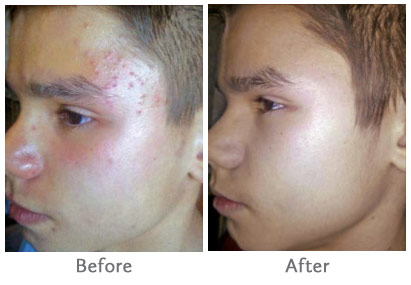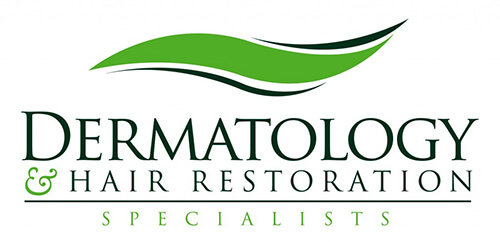
Who gets acne?
Acne is the most common of skin diseases, affecting 85 per cent of Los Angeles residents aged 15-24 years old. Very few people manage to escape their teenage and young adult years without some pimples and blackheads.
Acne usually clears spontaneously for many people by their mid 20s. However, for some young people acne is a far more serious problem with the possibility of permanent physical, mental and emotional effects.
When it comes to acne, it doesn’t matter whether you’re a guy or girl as both sexes get acne.
Adolescent boys and young men (13 – 25 yrs old) have higher levels of androgens (hormones that rule the development of the sexual organs) than females so they are more likely to have acne and unfortunately, are also more likely to have severe acne. Acne in guys usually settles during their early 20s.

Females are more likely to suffer with ongoing acne. In some cases, this means acne can be hanging around even in your 30s and 40s. Females can also develop acne for the first time after puberty.
What causes acne?
Acne happens when the oil glands (pores) in the skin become blocked. Hormones make the oil glands produce more oil (sebum) and if the pores are blocked, a build-up occurs and you’ve got acne.
The face, neck, chest, shoulders and upper back are the areas mainly affected by acne because they have the highest number of oil glands.
Acne usually starts at puberty when increased levels of sex hormones (known as androgens) cause an increase in the size and oil production of glands.
If you have a family history of acne, it may also increase your chances of developing acne.
What happens under your skin before a pimple pops up?
If the pore becomes blocked, oil builds up and causes irritation. Bacteria rapidly multiply within these blocked follicles contributing to the redness, swelling and tenderness of pimples.
Skin care advice
There are a few key steps to good skin care – important for everyone with acne.
Using the right skin care products can make a big difference in your acne control, promote skin health and help keep your skin looking young. With the huge number of skin care products and ranges available, choosing the best products for your acne and skin can be confusing.
Start by getting information from someone you can trust; someone who is trained in this area. Your pharmacist, general practitioner or dermatologist are good people to speak to for guidance in choosing the right skin care products to help control your acne, plus avoid treatment related problems.
Don’t base your skin care on how good the skin of a well-paid, Photoshop edited model or celebrity appears in an acne product advertisement.
Key steps
The best skin care routine for acne-prone skin is to:
Follow these skin care steps and recommendations – unless your health professional says otherwise. They’ll help you to achieve greater benefits and avoid acne treatment problems.
If your acne condition is limited mainly to white heads and blackheads, you probably have mild acne, especially if the lesions do not cover large areas of the face or body.
A whitehead occurs when the opening to the pore is closed off and the hair follicle fills with oil and dead skin cells.
A blackhead occurs when the opening to the pore is blocked by a dark plug of oil and dead skin cells. A chemical reaction causes the surface to darken and form a blackhead.
Early treatment and regular preventive skincare can reduce mild cases of acne.
Anti-acne treatments available without a prescription at pharmacies or on supermarket shelves can help control mild acne.
To read a personal story from a young person, please click here.
Advice for treating mild acne
If mild acne is concerning you, you need to take these necessary and important steps:
Step 1
Speak to your pharmacist about recommending some over the counter treatments, for your particular skin type.
Step 2
Follow the instructions carefully to help clear existing pimples and prevent new ones from forming.
Step 3
Stick with your recommended treatment. Use a gentle cleanser and mild moisturizer keep cosmetic use to a minimum. Avoid oil-based cosmetics, which may clog the pores.
Step 4
If you’re still concerned about your acne after eight weeks, make an appointment to visit your GP.
If you have mild acne, changing an acnegenic topical product may be all that is necessary for improved long-term control.
Topical skincare products containing such ingredients as salicylic acid, benzoyl peroxide and nicatinamide (also called niacinamide) can be effective for people with mild acne and are widely available without a prescription. Examples include Neutrogena’s Oil Free Acne Wash, Benzac and Papulex products.
Moderate Acne
If you have papules (raised reddish bumps) or pustules (raised reddish bumps but with white centers) you may have moderate acne, especially if the lesions are widespread across the face or body.
Breakouts last longer than in mild acne and often do not go away.
If over the counter products are not working and you think you have moderate acne, you should visit your doctor who can decide if you need a different treatment or if you should be referred to a dermatologist.
When moderate acne is not treated early enough, it can leave a permanent scar on the skin, so it’s good to get in early with the right advice.
Advice for treating moderate acne
If moderate acne is concerning you, you need to take these necessary and important steps:
Step 1
Make an appointment with your local GP.
Step 2
You may be prescribed a topical or oral (explained below) antibiotic and/or topical retinoid by your GP.
Step 3
If so, you need to allow up to 12 weeks for treatment to work.
Step 4
If you’re still concerned about your acne after 12 weeks, ask your GP for a referral to a dermatologist.
Antibiotics that treat acne come in two different forms – they are either topical (applied directly to skin) or oral (swallowed in tablet form). Both types reduce the presence of bacteria in the skin and also have an anti-inflammatory effect.
Oral antibiotics are generally used when acne has become moderate to severe. They may be used on their own or along with a topical treatment.
If you are prescribed a topical retinoid cream, you can expect the following:
Initial reaction
During the early days of therapy, blackheads will begin to dislodge. You may experience some redness, discomfort or peeling.
After three weeks
You may see new acne appearing. This is normal but it will soon disappear.
After six weeks
There should be good progress and a noticeable difference in the amount of acne.
After 12 weeks
Your acne should be under control. Further improvement is still possible.
General tips
- Wash face no more than two or three times a day. Pat your face dry without rubbing.
- Wait 20-30 minutes after washing your face before applying the topical cream.
- Avoid applying cream to the corners of the mouth, nose, and eyes or on other sensitive areas.
- Apply at least half an hour before going to bed.
- If stinging and redness is extreme, notify your GP.
If you have large, deep, solid and painful lumps or cysts under your skin, you may have severe acne.
The breakouts cover large areas of the face or body and last longer than in moderate acne, often not going away for months or years. It can have a huge impact on self-confidence and self-esteem, leading to anxiety and depression.
Severe cystic acne will not usually respond to over the counter skincare products available at pharmacies or from supermarket shelves. However, people with severe cystic acne should still follow general advice for managing acne.
Untreated, severe acne can cause permanent and disfiguring scars.
If you have severe acne, your doctor may refer you to a dermatologist for assessment and further treatment.
Severe acne can prevent a person from doing many things they usually enjoy because of a concern about their appearance and the opinion of others.
The treatment of severe acne
If severe acne is concerning you, you need to take these necessary and important steps:
Step 1
Get a referral from your GP for a dermatologist as soon as possible.
Step 2
Visit a dermatologist. Don’t be afraid to ask any questions you may have. If you think of a question after the visit, ring back their office.
Step 3
You may be prescribed antibiotics or isotretinoin.
Step 4
It is important that if you are prescribed antibiotics or isotretinoin that you follow the dermatologist’s instructions completely.
If you have severe acne, you should still follow a skin care routine of cleanse, treat and protect.
If you are prescribed isotretinoin in the first few weeks your skin will become much drier than before. To help protect your skin, try and keep your showers shorter than two minutes and use lukewarm water rather than hot.
Using a moisturiser your face regularly will help keep the dryness under control. The best type of moisturiser an oil-free face moisturiser for sensitive skin.
Men with severe acne who shave should try both an electric and safety razor to see which is more comfortable. If you use a razor, soften your beard thoroughly with soap and warm water. To avoid nicking pimples, shave as lightly as possible. Shave only when necessary and always use a sharp blade.




